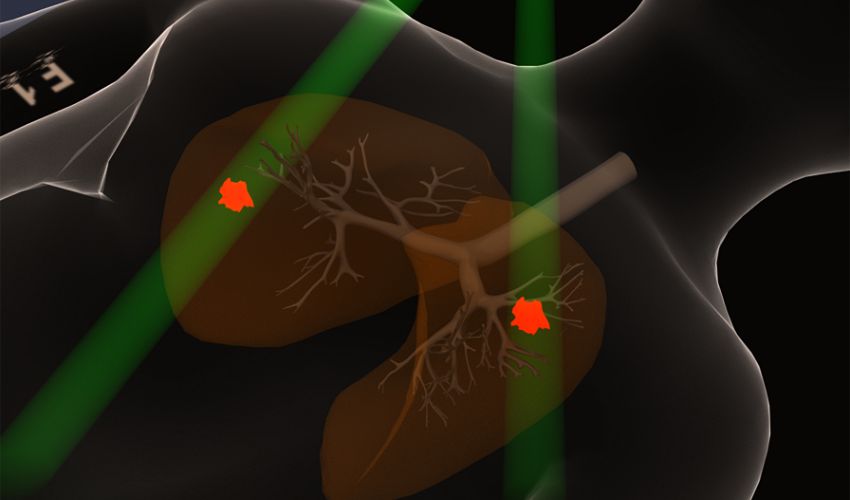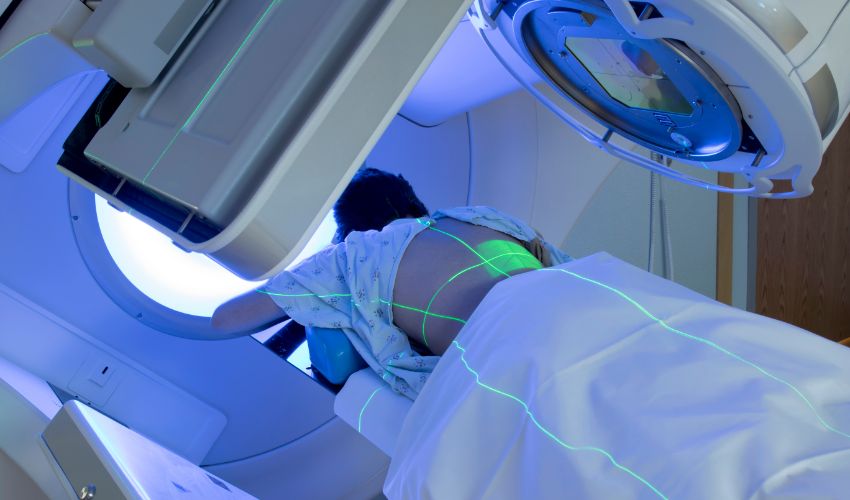Radiation therapy is a type of cancer treatment that uses high-energy radiation to kill cancer cells. It is one of the most common cancer treatments used today, and can be used to treat a wide range of cancers, including breast cancer, lung cancer, prostate cancer, and many others. In this article, we’ll explore what radiation therapy is, how it works, and its potential benefits and risks.
What is Radiation Therapy?
Radiation therapy is a cancer treatment that uses high-energy radiation to kill cancer cells. The radiation can be delivered in a variety of ways, including external beam radiation therapy and brachytherapy. External beam radiation therapy involves directing high-energy radiation from outside the body onto the cancerous area, while brachytherapy involves placing a radioactive source inside the body near the cancerous area.
How Does Radiation Therapy Work?
Radiation therapy works by damaging the DNA inside cancer cells, which prevents them from dividing and growing. While normal cells can also be affected by radiation therapy, they are usually better at repairing themselves than cancer cells. Radiation therapy can be used alone or in combination with other cancer treatments, such as chemotherapy or surgery.
Types of Radiation Therapy:
There are two main types of radiation therapy: external beam radiation therapy and brachytherapy. External beam radiation therapy involves directing high-energy radiation from outside the body onto the cancerous area, while brachytherapy involves placing a radioactive source inside the body near the cancerous area. Other types of radiation therapy include proton therapy and stereotactic radiosurgery.
Benefits of Radiation Therapy:
Radiation therapy can be an effective treatment for cancer, and can help to shrink tumors and relieve symptoms. It can also be used in combination with other cancer treatments, such as chemotherapy or surgery, to help improve outcomes. Radiation therapy is a non-invasive treatment, and can be delivered on an outpatient basis.

Risks and Complications of Radiation Therapy:
What You Need to Know Although radiation therapy is generally safe, it can also cause complications or long-term effects in some cases. Some potential risks and complications of radiation therapy include:
- Second cancer: Radiation therapy can increase the risk of developing a second cancer later in life, especially if you have received high doses of radiation or radiation to certain areas of the body. However, the risk is still relatively low compared to the potential benefits of radiation therapy.
- Organ damage: Radiation therapy can damage healthy tissues and organs near the treated area, especially if you have received high doses of radiation or radiation to vital organs such as the heart, lungs, or brain. This can cause short-term or long-term effects, depending on the severity of the damage.
- Radiation sickness: In rare cases, radiation therapy can cause radiation sickness, which is a collection of symptoms that occur when the whole body is exposed to high doses of radiation. Symptoms may include nausea, vomiting, diarrhea, fatigue, fever, and skin burns.
FAQs:
Is radiation therapy painful?
Radiation therapy is not typically painful, but some patients may experience mild discomfort during the treatment.
How long does radiation therapy last?
The length of radiation therapy treatment can vary depending on the type and stage of cancer being treated, but typically lasts several weeks.
Are there any long-term side effects of radiation therapy?
In some cases, radiation therapy can increase the risk of developing a second cancer later in life. However, this risk is generally low.
Can radiation therapy be used to treat all types of cancer?
Radiation therapy can be used to treat many different types of cancer, but it is not always the best treatment option.
What should I expect during radiation therapy?
During radiation therapy, you will lie still on a table while the radiation is delivered. The treatment itself is painless, but some patients may experience mild discomfort.

Conclusion:
Radiation therapy is a common and effective cancer treatment that uses high-energy radiation to kill cancer cells. While it does come with potential risks and side effects, it can also help to shrink tumors and relieve symptoms. If you or a loved one is facing a cancer diagnosis, be sure to talk to your doctor about whether radiation therapy may be a good treatment option for you.






















